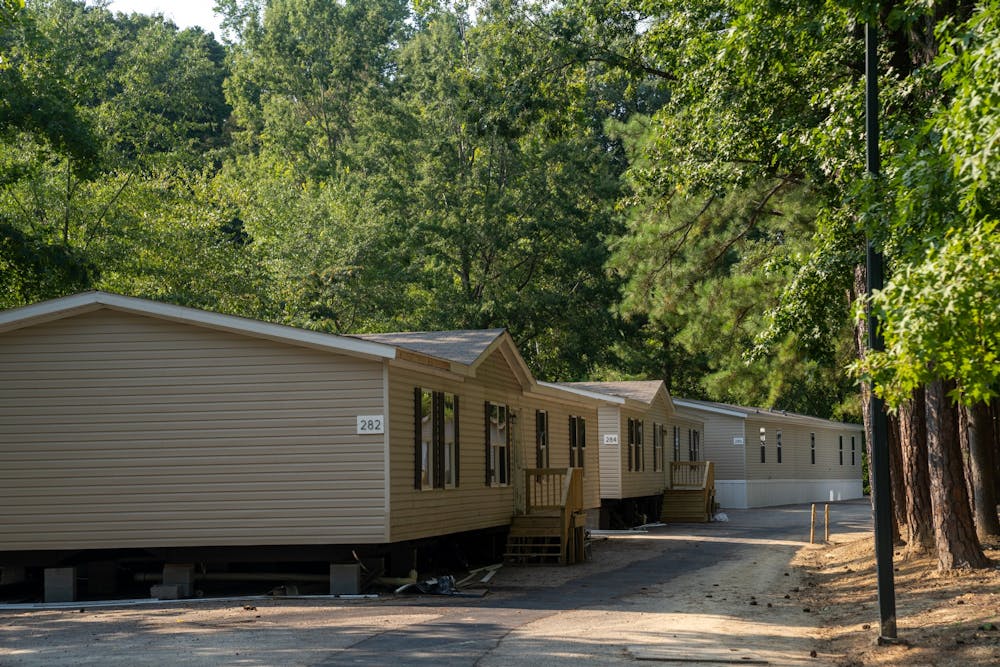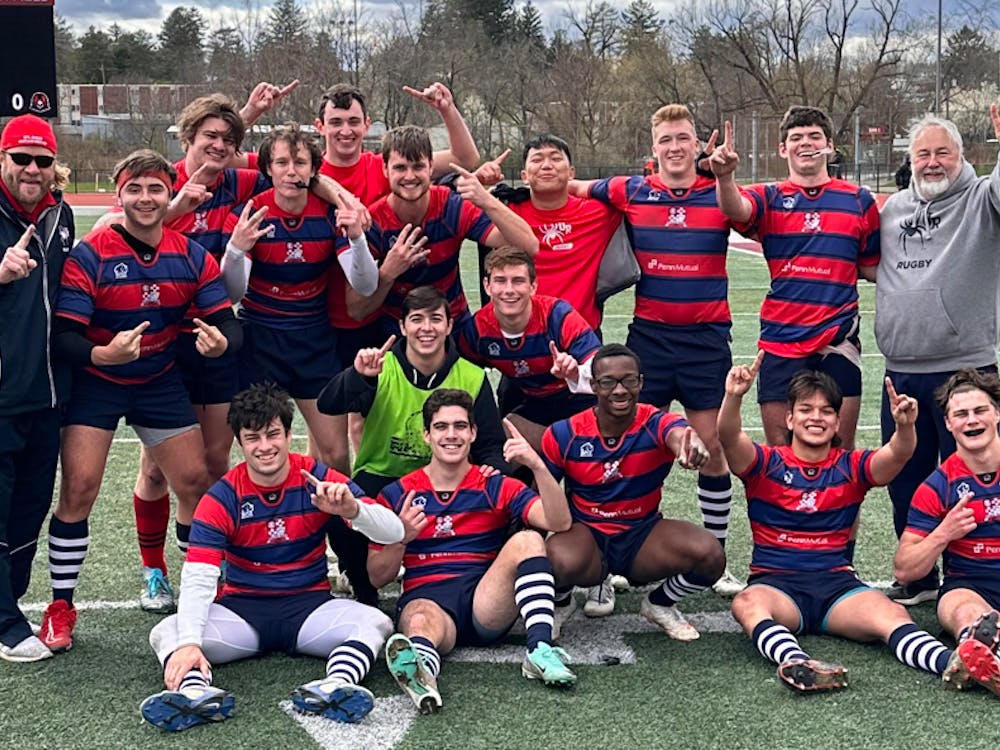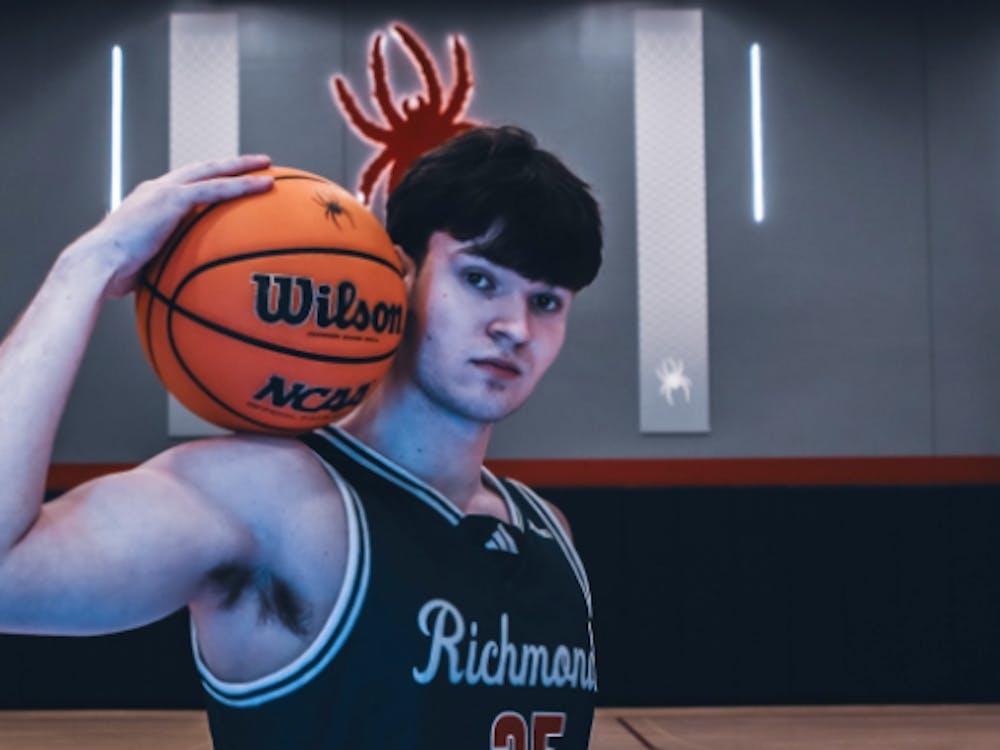Over the summer, University of Richmond administrators were tasked with constructing a plan that would allow 2,830 students from all over the United States and abroad into a single community with adequate food, facilities and safety measures, said Patrick Benner, director of residence life and housing.
Benner stood at the forefront of this planning.
“Every year, 800 to 900 students will come [move] in on one day," Benner said. Knowing how eager people are to get here, first-years usually move in within four hours, but this year it had to be across multiple days.”
Since March 11, when UR announced its plans for moving out students for the spring 2020 semester, Benner has been orchestrating a reopening process that would abide by the Centers for Disease Control guidelines and optimize UR’s chances for a safe on-campus college experience, Benner said. This included plans for isolation and quarantine, case management, rapid response, tracking and testing, according to the University's Fall 2020 plan, he said.
UR took steps to implement and follow proper guidelines despite the complications of doing so, Benner said. Whereas some universities mailed students COVID-19 tests to complete before coming to campus, UR tested students for COVID-19 upon arrival.
“Testing upon arrival created some challenges,” Benner said. “We realized we needed a phased move-in process to allow for test results to be administered. We had to figure out how to bring back our [resident assistants] and [orientation advisers] on campus early. Other than essential staff, there were no other early arrivals."
Usually, students can apply for early arrival if they are athletes, student employees, summer students, summer interns or international students, according to the residence life and housing website.
Resident assistants and orientation advisers moved-in in early August, Benner said. Move-in for pre-orientation programs — first-year students and transfer students — took place Aug. 14-16, and students whose siblings are first-year students at UR were also allowed to move in during those dates, Benner said. Three days after first-year students moved in, to allow COVID-19 test results to process, returning students moved in over a two-day period, starting on Aug. 19.
Some student-athletes could not move in early as they had done in previous years.
Sophomore soccer player Maddie Loughead was unable to move in early for the fall semester.
"We usually come to campus early for pre-season," Loughead said. "But this year we came with the rest of the student population, which is definitely a shift from what we're used to. This experience has not been the same, but I am taking all of these precautions very seriously in order to train and attempt to have a season this coming spring," she said.
UR administered just short of 3,500 tests for staff, on-campus students and off-campus students by working with SecureHealth, a health testing startup, Benner said. The staggered move-in and respective testing allowed for low congestion on campus and assured that any students who tested positive for the COVID-19 virus could be quarantined in a timely manner, he said.
Enjoy what you're reading?
Signup for our newsletter
First-year Ben Kashar moved in for orientation on Aug. 14, Kashar said.
"I was impressed by how the university got everyone housed safely and in a relatively short period of time," Kashar said. "I think having people moved in slowly made the whole process less overwhelming."
Though much has changed, because of Central Virginia's relatively low case count, students are still allowed to have roommates, Benner said.
“Schools in Northern Virginia converted to all singles, whereas the coronavirus data in Central Virginia put us in a different position,” he said.
Moreover, because of UR’s modular isolation units, students can quarantine without putting their roommates in jeopardy, he said.
Benner said he hoped that with persistent vigilance and organization, UR would continue to manage its COVID-19 cases.
Contact news writer Carly Kessler at carly.kessler@richmond.edu.
Support independent student media
You can make a tax-deductible donation by clicking the button below, which takes you to our secure PayPal account. The page is set up to receive contributions in whatever amount you designate. We look forward to using the money we raise to further our mission of providing honest and accurate information to students, faculty, staff, alumni and others in the general public.
Donate Now



